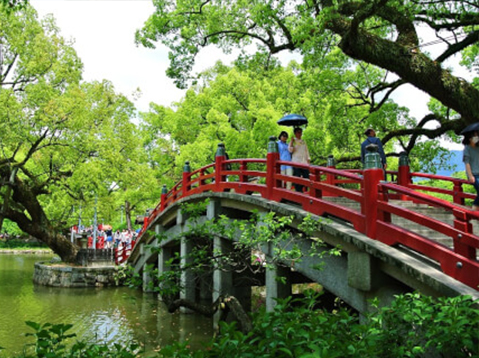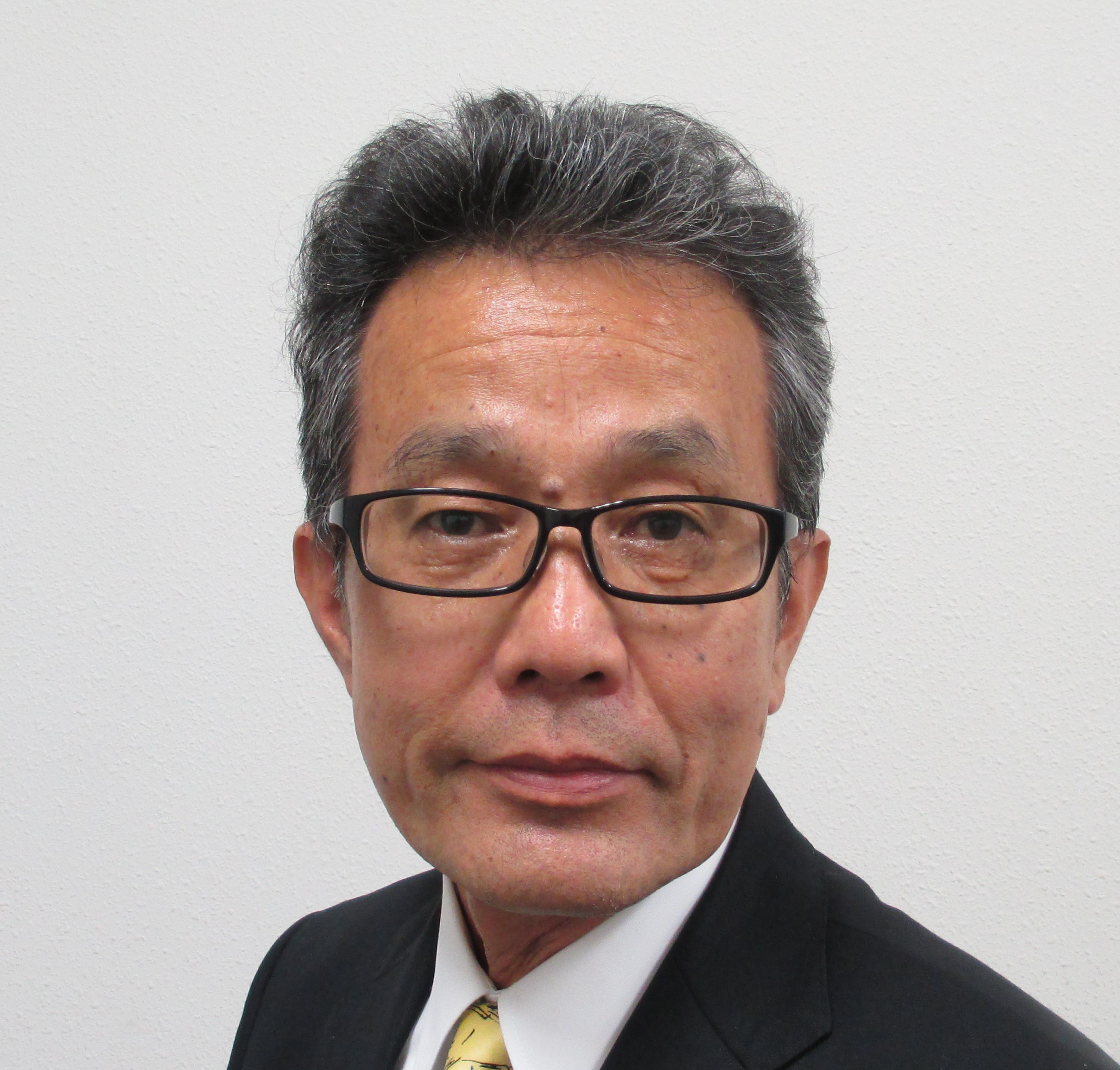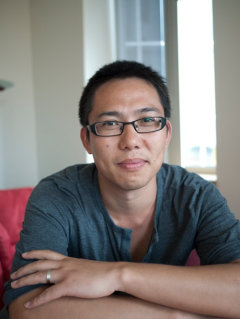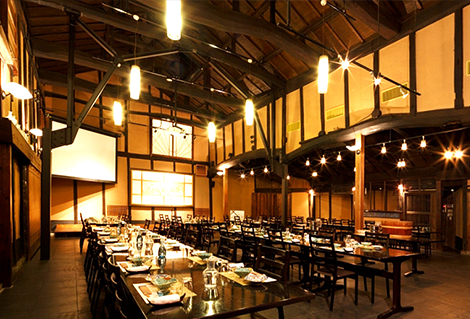



Internet provides a global open infrastructure for exchanging and sharing of various resources for the people all over the world. The rapid development and the wide application of Internet make it become a new mainstream platform for software to be used, developed, deployed and executed. With the vision of “Internet as computer”, many application styles such as pervasive computing, grid computing, service computing and cloud computing occur on this open and dynamic environment. In order to support various new application styles and accommodate the fundamental change of the underlying supporting platform, many specific software technologies such as service-oriented architecture are proposed for current practices. However, although these technologies are useful and popular, they are far from systematic and complete because no uniformed software methodology and technology system like the object-oriented one is provided.
Conceptually speaking, in order to adapt the software system to such a new environment, its structure
model should be autonomous, cooperative, situational, evolvable, emergent, trustworthy, etc. The software
entities dispersed on distributed nodes over the Internet, which evolved from objects in object-oriented
methodology to software components (component-based software development), now are further turned into
self-contained, autonomous and adaptive software services in service-oriented computing of state-of-arts.
These software entities are coordinated statically and dynamically in various kinds of interaction styles
(passively and actively) such as integration, cooperation, and orchestration to achieve flexible design
objectives. So a so-called “software-web” instead of information-web is weaved. This software-web as a
whole is able to perceive the changes of open, dynamic, and uncertain environment and respond them in the
way of transforming architectures. Furthermore, the flexible design objective of the software-web is
reflected by its exhibiting several compatible goal-directed behaviors according to its up-to-date
knowledge about the outside environment. A portmanteau term “Internetware” is used to denote the future
software-web in open and dynamic environment, which can be defined as follows: an Internetware system is a
software system consists of the self-contained, autonomous entities situated in the distributed nodes of
Internet and the coordinators connecting these entities statically and dynamically in various kinds of
interaction styles (passively and actively). As a whole, an Internetware system is able to perceive the
changes of open and dynamic environment such as Internet, respond to the changes in the way of
architectural transformation, and exhibit context-aware, adaptive and trustworthy behaviors in the open and
dynamic environment in order to meet its flexible design objectives. Internetware challenges many aspects
of software technologies, from operating platforms, programming models, to engineering approaches, etc.
With the Internetware paradigm, the software is architected like the Internet, developed with the Internet, operated on the Internet, and provided as services via the Internet. In the open, dynamic, and constantly changing environment of Internet, Internetware systems need to be autonomous, cooperative, situational, evolvable, emergent, and trustworthy. These requirements pose special challenges for software technologies to support the construction, deployment, and use of software applications based on Internet that not only of computers, but also of things and human users.
This symposium aims to provide an interactive forum where researchers and professionals from multiple disciplines and domains meet and exchange ideas to explore and address the challenges brought by Internetware.
Internetware 2019 will be held October 28-29 in Fukuoka, Japan. We solicit submissions describing original and unpublished results of theoretical, empirical, conceptual, and experimental software engineering research related to Internetware. Topics of interests include but are not limited to:
All submissions must not exceed 10 pages for all text, figures, tables, and references. All submissions must be in English and in PDF format. Submissions that do not comply with the above instructions will be desk rejected without review. Please use the 2019 ACM Master article template, as can be obtained from the ACM Proceedings Template pages.
Papers must be submitted electronically through EasyChair ( https://easychair.org/conferences/?conf=internetware2019).
Accepted Full papers must not exceed 10 pages for all text, figures, tables, and references. Accepted short papers must not exceed 6 pages for all text, figures, tables, and references. Please upload the camera copy via EasyChair. When uploading the camera copy, you must upload manuscripts including the source files and PDFs. You can compress the files in a zip file and upload the zip file.
All authors of accepted papers of will be asked to complete an electronic ACM Copyright form and will receive further instructions for preparing their camera ready versions. All accepted contributions will be published in the of Internetware 2019 electronic proceedings and in the ACM Digital Library. Authors of best papers and selected papers will be invited to submit an extended version of their papers to Journal of Computer Science and Technology (JCST). All the extended submissions will be evaluated following the guidelines set by JCST. Only those satisfying all the criteria will be accepted for the journal publication.
Hong Mei, Beijing Institute of Technology/Peking University
Jian Lyu, Nanjing University
Zhi Jin, Peking University
Tao Huang, Chinese Academy of Sciences
Daoxu Chen, Nanjing University
Jianmin Wang, Tsinghua University
Xuandong Li, Nanjing University
Jianjun Zhao, Kyushu University, Japan
Zhi Jin, Peking University
Xuandong Li, Nanjing University
Hausi Müller, University of Victoria, Canada
Gang Huang, Peking University, China
Yuting Chen, Shanghai Jiao Tong
University, China
Shing-Chi Cheung, Hong Kong University of Technology, Hong Kong
William Cheng Chung Chu, Tunghai
University, Taiwan
Fuyuki Ishikawa, National Institute of Informatics,
Japan
He Jiang, Da Lian University of Technology, China
Sy-Yen Kuo, National Taiwan University, Taiwan
Hui Liu, Beijing Institute of Technology, China
Yang Liu, Nanyang Technology University, Singapore
Marin Litoiu, York University, Canada
Lei Ma, Kyushu University, Japan
Xiaoxing Ma, Ninjing University, China
Hidehiko Masuhara, Tokyo Institute of Technology,
Japan
Xin Peng, Fudan University, China
Ulrike Stege, University
of Victoria, Canada
Kenji Tei,
Waseda University / National Institute of Informatics, Japan
Hironori Washizaki, Waseda University, Japan
Song Wu, Huazhong University of Science and Technology, China
Tao Xie, University of Illinois at Urbana-Champaign, USA
Chang Xu, Nanjing University, China
Jifeng Xuan, Wuhan University, China
Shyan-Ming Yuan, National Chiao Tung University, Taiwan
Haiyan Zhao, Peking University, China
Minghui Zhou, Peking University, China
Yaokai Feng, Kyushu University, Japan
Lei Ma, Kyushu University, Japan
Haibo Yu, Kyushu Sangyo University, Japan
Submission Deadline:
July 21, 2019
(Extended to August 5, 2019)
Notification of Acceptance: August 23, 2019
Camera-Ready Version: September 8, 2019
| October 28th (Monday) | |
| Morning | |
| 08:00 - 11:00 | Registration |
| 08:45 - 09:00 | Opening |
| Welcome from the Chairs | |
| 09:00 - 10:00 | Session I: Keynote I (Chair: Hausi Müller, University of Victoria, Canada) |
| Toward Sustainable Information Infrastructure Platform for Smart Mobility Akira Fukuda (Kyushu University, Japan) |
|
| 10:00 - 10:30 | Break |
| 10:30 - 12:00 | Session II: Mobile Software Systems (Chair: Guangdong Bai, The University of Queensland, Australia) |
| Understanding Quality of Experiences on Different Mobile Browsers Deyu Tian and Yun Ma (Peking University) | |
| Extracting Mapping Relations for Mobile User Interface Transformation Ruihua Ji, Junyu Pei (Nanjing University), Wenhua Yang (Nanjing University of Aeronautics and Astronautics), Juan Zhai, Minxue Pan and Tian Zhang (Nanjing University) |
|
| TransDroid: Automatic Client-based Service Evolving in Android Apps Shuhui Zhang (Beijing Institute of Technology), Huaqian Cai and Ying Zhang (Peking University) |
|
| 12:00 - 13:30 | Lunch |
| Afternoon | |
| 13:30 - 15:00 | Session III: Software Testing (Chair: Chun Cao, Nanjing University, China) |
| A Time Window based Reinforcement Learning Reward for Test Case Prioritization in Continuous Integration Zhaolin Wu, Yang Yang, Zheng Li and Ruilian Zhao (Beijing University of Chemical Technology) |
|
| Generating Environmental Models for Testing Self-adaptive Systems Zhengchuan Liang and Yi Qin (Nanjing University) |
|
| Writing Tests for This Higher-Order Function First: Automatically Identifying Future Callings to Assist Testers Yisen Xu, Xiangyang Jia and Jifeng Xuan (Wuhan University) |
|
| 15:00 - 15:30 | Break |
| 15:30 - 17:30 | Session IV: Open Source Software (Chair: Xin Peng, Fudan University, China) |
| Exploring the Relationship Between Developer Activities and Profile Images on GitHub Yiwen Wu, Yang Zhang, Tao Wang and Huaimin Wang (National University of Defense Technology) |
|
| Duplicate Pull Request Detection: When Time Matters Qingye Wang (Zhejiang University), Bowen Xu (Singapore Management University), Xin Xia (Monash University), Ting Wang and Shanping Li (Zhejiang University) |
|
| Extracting Code-relevant Description Sentences Based on Structural Similarity Yingkui Cao, Yanzhen Zou and Bing Xie (Peking University) |
|
| The Evolution of Open-Source Blockchain Systems: An Empirical Study Jiawei Cao, Xingya Wang, Zixin Li, Qiqi Gu and Zhenyu Chen (Nanjing University) |
|
| 18:30 - 20:30 | Reception (The SRP Hall on the same floor of the conference) |
| October 29th (Tuesday) | |
| Morning | |
| 09:00 - 10:00 | Session V: Keynote II (Chair: Zhenjiang Hu, Peking University/NII, China/Japan) |
| Are SE Techniques Right for AI Systems? Sun Jun (Singapore Management University) |
|
| 10:00 - 10:30 | Break |
| 10:30 - 12:00 | Session VI: Software Engineering and Artificial Intelligence (Chair: Lei Ma, Kyushu University, Japan) |
| Fast Robustness Prediction for Deep Neural Network Yuehuan Wang, Zenan Li, Jingwei Xu, Ping Yu and Xiaoxing Ma (Nanjing University) |
|
| A Neural-Network based Code Summarization Approach by Using Source Code and its Call Dependencies Bohong Liu, Tao Wang, Xunhui Zhang, Qiang Fan, Gang Yin and Jinsheng Deng (National University of Defense Technology) |
|
| An Approach to Helping Developers Learn Open Source Projects Based on Machine Learning Zhiyu Sun, Fang Peng, Junrui Guan and Yanchun Sun (Peking University) |
|
| 12:00 - 13:30 | Lunch |
| Afternoon | |
| 13:30 - 15:00 | Session VII: Software Automation and Adaptation (Chair: Bixin Li, Southeast University, China) |
| Speedup Automatic Program Repair Using Dynamic Software Updating: An Empirical Study Rongxun Guo (Nanjing University), Tianxiao Gu (Alibaba Group), Yuan Yao, Feng Xu and Xiaoxing Ma (Nanjing University) |
|
| Migrating Deprecated API to Documented Replacement: Patterns and Tool Yaoguo Xi, Liwei Shen, Yukun Gui and Wenyun Zhao (Fudan University) |
|
| JLLAR: A Logging Recommendation Plug-in Tool for Java Jing Zhu, Guoping Rong, Guocheng Huang, Shenghui Gu, He Zhang and Dong Shao (Nanjing University) |
|
| 15:00 - 15:30 | Break |
| 15:30 - 17:30 | Session VIII: Software Modeling and Quality (Chair: Yuting Chen, Shanghai Jiao Tong University, China) |
| Modeling and Reasoning Event-B Models Based on Mathematica Guoteng Pan, Mengjun Li and Guodong Ou (National University of Defense Technology) |
|
| From Data Quality to Model Quality: an Exploratory Study on Deep Learning Tianxing He, Shengcheng Yu (Nanjing University), Ziyuan Wang (Nanjing University of Posts and Telecommunications), Jieqiong Li and Zhenyu Chen (Nanjing University) |
|
| Deep Semantic-Based Feature Envy Identification Xueliang Guo, Chongyang Shi and He Jiang (Beijing Institute of Technology) |
|
| A Preliminary Study on Data Augmentation of Deep Learning for Image Classification Cheng Lei, Benlin Hu, Dong Wang, Shu Zhang and Zhenyu Chen (Nanjing University) |
|
| 17:30 - 17:45 | Closing |
| 18:30 - 21:30 | Banquet (18:30 departure from the conference place) |

Smart mobility systems, which include Intelligent Transportation System (ITS) and smart energy systems, become more and more important. There is, however, lack of systematical platform studies. This talk introduces a sustainable information infrastructure project for smart mobility systems. The project pursues issues that establish an information infrastructure architecture and seamless development method chain for it. The project has mainly two features: 1) applying life-cycle-oriented methods, which are a cycle from system development to operations, to the real world, and 2) dealing with uncertainties when a system begins to be designed. This talk describes an overview of the project.
Prof. Akira Fukuda received the BEng, MEng, and PhD degrees in computer science and communication engineering from Kyushu University, Japan, in 1977, 1979, and 1985, respectively. From 1977 to 1981, he worked for the Nippon Telegraph and Telephone Corporation, where he engaged in research on performance evaluation of computer systems and the queueing theory. From 1981 to 1991 and from 1991 to 1993, he worked for the Department of Information Systems and the Department of Computer Science and Communication Engineering, Kyushu University, Japan, respectively. In 1994, he joined Nara Institute of Science and Technology, Japan, as a professor. Since 2001, 2008, and 2016, he has been a professor of Graduate School of Information Science and Electrical Engineering, and director of System LSI Research Center, and director of R&D Center for Smart Mobility, Kyushu University, Japan, respectively. Since 2015, he has been a distinguished professor of Kyushu University. His research interests include embedded systems, ubiquitous computing, system software (operating systems, compiler, and run-time systems), parallel and distributed systems, and performance evaluation. He is an IPSJ fellow. He is a member of the ACM, the IEEE Computer Society, the IEICE, the IPSJ, and the Operations Research Society of Japan.

Deep neural networks can be regarded as "universally" applicable programs, which build upon not logic but data and optimization. While they are incredibly powerful, they suffer many of the same problems of software systems, e.g., bugs, and back-doors. Recently, there is a trend on applying software engineering techniques to AI systems. In this talk, I will present two such attempts from our group and, more importantly, ask the question on whether such approaches are always justified.
SUN, Jun is currently an associate professor at Singapore Management University (SMU). He received Bachelor and PhD degrees in computing science from National University of Singapore (NUS) in 2002 and 2006. In 2007, he received the prestigious LEE KUAN YEW postdoctoral fellowship. He has been a faculty member since 2010 and was a visiting scholar at MIT from 2011-2012. Jun's research interests include software engineering, cyber-security and formal methods. He is the co-founder of the PAT model checker. He serves a technical consultant/scientist for multiple companies.
Registration for Internetware 2019 and AWASE 2019.
The registration deadline for authors is 20 September 2019 (23:59:59, JST).
The early registration deadline is 7 October 2019 (23:59:59, JST).
The late registration deadline is 21 October 2019 (23:59:59, JST).
Each accepted paper of Internetware must have at least one author registered at a REGULAR rate by September 20, 2019. For papers registered only by students, at least one student must register at the REGULAR rate.
| Oct.28 | Oct.29 | Oct.30 | |
|---|---|---|---|
| SFDI 2019+ | SFDI 2019+ | ||
| Internetware 2019 | Internetware 2019 | Internetware 2019 | |
| AWASE 2019 | AWASE 2019 | AWASE 2019 | |
| Social Event | Reception | Banquet at 博多百年蔵 |
博多百年蔵 https://www.ishikura-shuzou.co.jp/banquet
| Early Registration (by October 7, 2019 23:59:59 JST) |
Late Registration (by October 21, 2019 23:59:59 JST) |
|||
|---|---|---|---|---|
| Regular | Student | Regular | Student | |
| Internetware | 75000 | 60000 | 85000 | 70000 |
| AWASE-only | 38000 | |||
| All-Events | 85000 | 70000 | 95000 | 80000 |
1) Internetware includes SFDI2019+ workshop, lunches and tea/coffee on each day of the symposium (28-29 Oct.), a reception (28 Oct.) and a banquet (29 Oct.).
2) AWASE-only includes lunches and tea/coffee on each day of the workshop (29-30 Oct.) and a banquet.
3) All-events includes Internetware Symposium, AWASE and SFDI2019+ workshops. It includes lunches and tea/coffee on each day (28-30 Oct.), a reception (28 Oct.) and a banquet (29 Oct.).
Notification of cancellation must be made in writing (by email) to the Conference Secretariat (internetware2019@conferenceservice.jp). Cancellations will be accepted until Oct. 7, Mon. 23:59:59 (JST). When making a reimbursement, the Conference Secretariat will retain JPY 10,000 from prepaid registration fee as a processing fee. After Oct. 7, Mon. 24:00:00 (JST), no refunds will be made for any reasons.
If you have any questions about the registration, please contact the Conference Secretariat (internetware2019@conferenceservice.jp).
Please consult with your nearest Japanese embassy/consulate or your travel agency for the visa and entry requirements. For those who need a visa to travel to Japan, an invitation letter for visa can be issued by local organizers. Please send all requests to yu-haibo@is.kyusan-u.ac.jp with the following information:
Note that we can only provide invitation letters for visa to participants that have paid their registration fees. More details on Japan visa requirements can be found at here.
Internetware 2019 will be held at Fukuoka SRP Center Building.
Introducation to the Fukuoka SRP Center Building
Address: 2-1-22, Momochihama, Sawara-ku, Fukuoka 814-0001, Japan



There are many hotels in Fukuoka from which you can quickly and easily access the conference venue by the public transportation, but the following list gives a few hotels near the conference venue. October is one of the best seasons in Japan and hotels tend to be very busy. If you plan to attend the conference, it will be good if you can book your hotels as early as you can. For hotel reservation, please directly use the following hotel webpages or directly contact with the hotels.
You can also use Booking.com to book your hotels in Fukuoka as well.
| Hotel Name | Time to walk to conference venue | Hotel Website |
|---|---|---|
| Twins Momochi | 2 mins | Link (Japanese only) |
| The Residential Suites Fukuoka | 5 mins | Link |
| Hilton Fukuoka Sea Hawk | 6 mins | Link |
Ramen is a kind of noodle dish. Its origin is Chinese noodle but it has been localized for a hundred years. In Fukuoka, you can eat many kinds of Ramen, of which tonkotsu ramen is one of the most popular variation of ramen.
Since Fukuoka is a coastal city, you can enjoy a variety of seafood. Of cource, you can eat sushi or sashimi. Mentaiko (eggs of Alaskan Pollack) is a typical food of Fukuoka.
Motsunabe is Fukuoka-local dishes classified to nabemono. In motsunabe, beef or pork offal is used instead of chicken and its soup is spicy.
Kushiyaki is the general term for grilled/fried things on skewers. Chicken is some of the most popular, in that cases, Kushiyaki is also called "yakitori".





